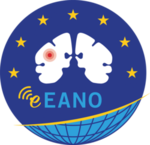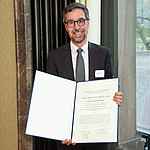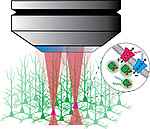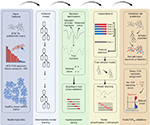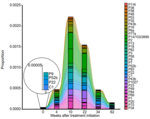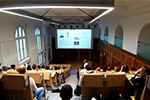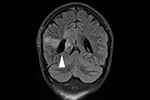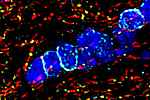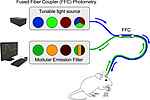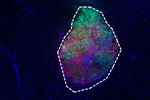Sie befinden sich hier
Inhalt
Michael Platten took over as President of the European Association of Neuro-Oncology (EANO) at this year's EANO 2024 Congress in Glasgow. He will hold this honorary position for two years, until the next but one congress of the association. read more …
The innovative field of synthetic immunology, which could lead to fundamentally new approaches and methods in the treatment of infectious diseases and cancer, is the topic of an article in the “Perspectives” section of the journal Nature Nanotechnology. read more …
An international team of researchers has provided new insights into the molecular changes associated with the pathogenesis of inclusion body myositis (IBM), based on single-cell RNA sequencing of muscle biopsies from patients. The scientists found that certain muscle fiber types (type 2A) are particularly susceptible to the pathological processes associated with IBM - associated with genetic stress of the cells and detectable by an increase in corresponding markers indicating pronounced DNA damage in the cell nucleus. In addition, evidence of possible acetylcholinesterase dysfunction has been found in the inflamed muscles of IBM patients. read more …
On May 13-14, 2024, the final symposium of the DFG-funded Research Training Group (RTG) 2350 “Impact of Adverse Childhood Experiences on Psychosocial and Somatic Conditions across the Lifespan” took place at the Cubex One in Mannheim. The two-day symposium provided an update on the current state of knowledge on the effects of adverse childhood experiences. read more …
Christian Schmahl has accepted an appointment as Professor of Psychosomatics and Psychotherapeutic Medicine at the Mannheim Medical Faculty of the University of Heidelberg. He is also now a core member of the MCTN. read more …
Activated T cells, which carry a specific marker protein on their surface, are controlled by natural killer (NK) cells. This is thought to be how the body suppresses destructive immune responses. Researchers at DKFZ and UMM have now discovered that NK cells can interfere with the effect of cancer therapies with immune checkpoint inhibitors in this way. They may also be responsible for the rapid decline of therapeutic CAR-T cells. Interventions in this mechanism could potentially improve the efficacy of these cellular cancer immunotherapies. read more …
Michael Platten has been awarded the 2024 Paul Martini Prize for the development of therapeutic vaccines against malignant brain tumors. The prize is awarded annually by the Paul Martini Foundation, Berlin, for outstanding achievements in clinical-therapeutic drug research. It is endowed with €50,000. read more …
This year, the European Research Council (ERC) awarded the prestigious grants to neuropsychologist and clinical psychologist Herta Flor (CIMH), who aims to improve the prevention of chronic pain and to neurologist Michael Platten (DKFZ and University Medical Center Mannheim), who will use the ERC funding to develop and test personalized cellular immunotherapies against malignant brain tumors. read more …
A new technology for all-optical monitoring and manipulation of neuronal circuits, based on 3D holography, will be established at the MCTN. Under the leadership of Simon Wiegert an application for an upright two-photon microscope for intravital fluorescence microscopy and photostimulation was approved by the German Research Foundation. read more …
Making a personalized T cell therapy for cancer patients currently takes at least six months. Scientists at the German Cancer Research Center (DKFZ) and the University Medical Center Mannheim have shown that the laborious first step of identifying tumor-reactive T cell receptors for patients can be replaced with a machine learning classifier that halves this time. read more …
Researchers from the BioMed X Institute and the University Medical Centre Mannheim have published the results of their collaboration on a novel neoepitope vaccine against diffuse midline glioma in the journal Science Advances. read more …
Simon Wiegert receives ERC funding to develop a hyperspectral fiber photometry system that can be used flexibly for a wide range of optical measurements of brain function. read more …
At our Imaging in Neuroscience Symposium on December 7th at the University Hospital Mannheim, scientists presented their latest research and discussed new developments in the field of live imaging and the study of brain physiology and pathophysiology at different spatial and temporal scales. We look back on a very interesting and inspiring day with insightful presentations, interesting questions and important discussions with more than 90 attendees on site. read more ...
Neurologist and MCTN director Michael Platten and psychiatrist and CEO Andreas Meyer-Lindenberg from the Central Institute of Mental Health are listed among the world's most cited scientists in the category “cross field”. read more …
Physicians and cancer researchers from Heidelberg and Mannheim have now treated adult patients with advanced midline gliomas, difficult-to-treat brain tumors, with a peptide vaccine for the first time. The vaccine mimicked a mutational change in a histone protein typical of this type of cancer. The vaccine proved to be safe and induced the desired immune responses directed against the brain tumor. read more …
Two Collaborative Research Centers “Understanding and targeting resistance in glioblastoma” (CRC 1389), and “From nociception to chronic pain: structure-function properties of neural pathways and their reorganization” (CRC 1158) and the CRC/Transregio “Losing and Regaining Control over Drug Intake – From Trajectories to Mechanisms to Interventions” (CRC/TRR 265) in which MCTN members from the Medical Faculty of Mannheim and the Central Institute of Mental Health are involved have successfully qualified for a further funding period. read more …
In an international collaborative study, scientists from the Department of Neurology have now identified potassium channels along the nerve fibers in the CNS as potential targets to arm vulnerable neurons against the inflammatory demyelination that occurs in the course of multiple sclerosis. read more …
Fused Fiber Photometry (FFP) - a flexible, versatile and cost-effective system for recording neuronal activity
Scientists from the Department of Neurophysiology have developed a flexible and versatile system that allows the study of brain function in many ways. The fused fiber photometry (FFP) system couples multicolor photometry with optogenetics. read more …
T cell-independent eradication of experimental glioma
Glioblastoma, an aggressive primary brain tumor type, is considered an immunologically "cold" tumor with sparse infiltration by adaptive immune cells. Immunosuppressive tumor-associated myeloid cells are drivers of tumor progression. Targeting and reprogramming intratumoral myeloid cells induces tumor regression in experimental glioma without requiring adaptive immunity. read more …
Hertie foundation extends the "Hertie Network of Excellence in Clinical Neuroscience" funding program

The network brings together six top sites of clinical brain research and offers career prospects for excellent young researchers. read more ...
What keeps the immune defense in brain tumors functional
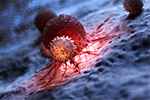
Cancer immunotherapies often fail because the immune cells are paralysed by immunosuppressive conditions in the tumor. Scientists from Heidelberg, Mannheim and Tel Aviv have now shown on tissue samples from patients as well as on tumor models in mice that the functionality of the immune defence depends decisively on certain helper cells. read more …
Research on Fatigue in Long-COVID

The chronic exhaustion syndrome "fatigue" occurs as a consequence of surviving a COVID-19 infection. By studying a total of 100 patients, researchers from three scientific institutions in Baden-Württemberg want to gain new insights into fatigue to identify new targets for the therapy of fatigue associated with long-COVID. read more …
Simon Wiegert, new head of the Department of Neurophysiology

Prof. Simon Wiegert has been appointed by the University of Heidelberg to the W3 professorship in neurophysiology and heads the Department of Neurophysiology, since October 2022. He and his team will study the relationship between neuromodulation, neuronal plasticity and long-lasting changes in neuronal networks, with a particular focus on the plasticity of synaptic connections. read more …
John J. Bonica Prize of the IASP for Prof. Rolf-Detlef Treede

Prof. Rolf-Detlef Treede, head of the Department of Neurophysiology has been awarded the John J. Bonica Prize at the World Congress of the International Association for the Study of Pain (IASP). The professional society awards the prize every two years to a person who has made major contribution to pain research or therapy. read more …
ZONTA Club acknowledges neuroanatomical thesis by Dr. Nora Jamann
For her outstanding dissertation in neuroanatomy, Dr. Nora Jamann was awarded the science prize of the ZONTA Club Heidelberg during a small ceremony in the Bel Etage of the Rectorate of Heidelberg University. read more …
Lucas Schirmer received Sobek Young Investigator Award

Lucas Schirmer, neuroscientist and professor of Translational Neurobiology at the Mannheim Medical Faculty, was awarded the Sobek Young Investigator Award 2022 on July 29. This prize honors scientific work considered to be groundbreaking in the research of multiple sclerosis. Lucas Schirmer received the award for his work using high-throughput single-cell sequencing methods to investigate changes in the genome of individual cells that are relevant to multiple sclerosis. read more …
Lucas Schirmer appointed to Heisenberg Professorship for Translational Neurobiology

Med. Fakultät Mannheim
Since July 1, 2022, a Heisenberg Professorship for "Translational Neurobiology" is part of the core area of the MCTN. Professor Lucas Schirmer, MD, has successfully obtained the professorship, initially financed by the German Research Foundation (DFG) within the framework of his Heisenberg programme. Lucas Schirmer focuses on neurological diseases caused by immune system dysfunctions. read more …
Lukas Bunse received Hella Bühler Prize for Cancer Research
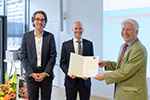
Scientist and neurologist Dr. Dr. Lukas Bunse received the Hella Bühler Award, which is endowed with €100,000. The award aims at young researchers at Heidelberg University with outstanding scientific engagement in cancer research. Lukas Bunse is conducting research in the field of brain tumor immunology. read more …
Subcellular vesicles regulate stemness of neural stem cells
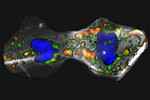
Researchers at the Hector Institute for Translational Brain Research (HITBR) at the Central Institute of Mental Health investigate how cellular fate decisions in dividing human neural stem cells are regulated. read more …
Prof. Andreas Meyer-Lindenberg among the most cited scientists 2021

For the eighth year in a row, researcher and CEO Andreas Meyer-Lindenberg from the Central Institute of Mental Health, as well as holder of a professorship at the Mannheim Medical Faculty of the University of Heidelberg is listed among the world's most cited scientists. read more …
Using T cells to target malignant brain tumors
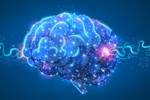
Doctors and scientists from the German Cancer Research Center (DKFZ) and from Heidelberg University's Medical Faculty Mannheim have successfully tested a neoantigen-specific transgenic immune cell therapy for malignant brain tumors for the first time using an experimental model in mice. read more …
DFG Research Group "Translational Pruritus Research" enters second funding phase

The interdisciplinary research group "Translational Pruritus Research" (FOR 2690) to continue successful research: Funding through the German Research Foundation (DFG) has been secured until 2024. The research group formed in 2018 to uncover the fundamental mechanisms of itching and thus develop more effective therapies against chronic pruritus. read more …
Department of Neurology participates in graduate school InCheck
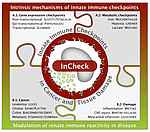
The Department of Neurology is involved with two projects in the new Research Training Group GRK2727 InCheck: “Innate Immune Checkpoints in Cancer and Tissue Damage” funded by the German Research Foundation. read more …
Insight into the pathology of IgG4-associated diseases
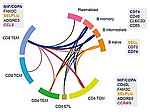
Single cell sequencing deciphers pathogenic immune cell interaction in inflammatory pseudotumors of the brain. A platform developed at the Department of Neurology at the University Medical Centre Mannheim and the German Cancer Research Center now provides surprising insights into the pathology of IgG4-associated diseases. read more …
Review of the final symposium & spring school of the Research Training Group 2350 in June 2021
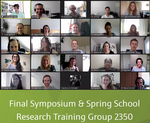
From 7th to 10th June Ph.D. and M.D. candidates immersed themselves in a virtual event at the final symposium and spring school 2021 of the research training group 2350 on the Impact of Adverse Childhood Experiences on Psychosocial and Somatic Conditions across the Lifespan. read more …
How „paralyzed“ immune cells can be reactivated against brain tumors

Researchers discovered, that brain tumor cells carrying a certain but common mutation, reprogram invading immune cells and thereby suppress the body’s immune defense against the tumor. The research team also identified a way of reactivating the paralyzed immune system to fight the tumor and provide evidence that therapeutic vaccines or immunotherapies against brain tumors are more effective, if the suppressed immune system is simultaneously treated and thereby supported by pharmacological substances. read more …
Balancing neuronal activity

To process information in our brains, neurons produce brief electrical impulses, called action potentials, triggered from one highly specialized region at the cell’s axon, called the axon initial segment (AIS). Scientists from the Institute of Neuroanatomy at the Mannheim Center for Translational Neuroscience (MCTN), together with researchers from the Netherlands Institute for Neuroscience in Amsterdam and the University of Göttingen now show that the AIS surprisingly changes with experience: It shrinks with increasing experience and, vice versa, elongates when less input arrives in the brain. This reversible effect could contribute to balancing all neuronal activity generated within a distinct functional network in the brain. read more …
BMBF supported project Nphys (Magerl) 16GW0293
„Einfluss FKBP51-überinduzierender Genotypen auf Schmerzphänotypen und humane Schmerzplastizität“, 2020 – 2022
PerPain: New research consortium to improve treatment response of chronic musculoskeletal pain disorders through a personalized therapy approach
6th August 2020
With a budget of approx. 2,100,000€, the BMBF funds the new research consortium “Improving outcomes in chronic musculoskeletal pain through a personalized medicine approach using cross-illness multilevel assessments and mechanism-based interventions” that involves two groups at the Central Institute of Mental Health represented by the Institute of Cognitive and Clinical Neuroscience (Prof. Dr. Dr. h.c. Dr. h.c. Herta Flor and Dr. Martin Löffler as co-investigator) and the Department of Public Mental Health (Prof. Dr. Ulrich Reininghaus). read more...
Losing and Regaining Control over Drug Intake
6th August 2020
The German Research Foundation (DFG) funded the Collaborative Research Centre/Transregio 265 Losing and Regaining Control over Drug Intake: From Trajectories to Mechanisms to Interventions. The project aims to better understand, which mechanisms are responsible for people losing control over drug use. Therapies should be developed on this basis. The CIMH cooperates with the Charité - Universitätsmedizin Berlin and the Technische Universität Dresden, among others.
Psychophysics of Functional Neurological Symptoms and the Role of Emotional Regulation in their Development
6th August 2020
The German Research Foundation (DFG) is funding the project “Psychophysics of Functional Neurological Symptoms and the Role of Emotional Regulation in their Development”. The project is a cooperation of CIMH and UMM, led by Dr. Inga Niedtfeld and Dr. Valentin Held. Since functional neurological disorders affect an interface between neurology and psychology, this research project will investigate psychological mechanisms (emotion regulation) using experimental methods as well as classical neurological testing procedures (quantitative sensory testing, QST).
MCTN´s inaugural meeting
3rd July 2020
The MCTN's mission is to facilitate interaction and translation in neuroscience in Mannheim. To this end, the MCTN's inaugural meeting was held on Friday 3rd July 2020 in the Alte Brauerei in Mannheim, where the members of the MCTN and the focus area Translational Neurosciences discussed future goals and the establishment of the MCTN.

